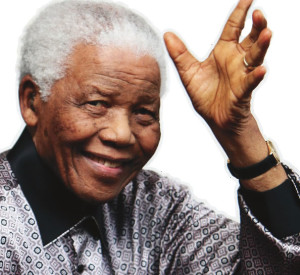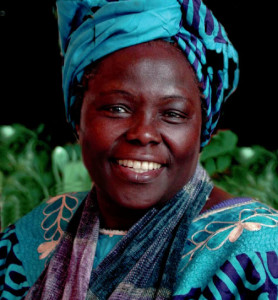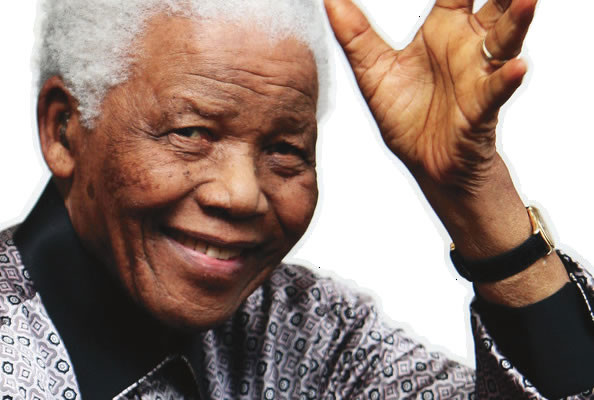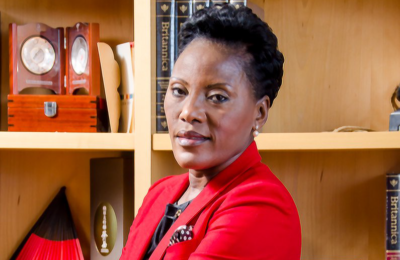
Nelson Mandela
The role model discussion has been raging for generations and will continue for many more.
We live in an exciting era filled with scintillating technological advancements such as the Internet, iPads, iPhones, Kindles, iPods, cellphones, television, magazines and more.
All these kinds of technologies are used to wire people into stuff like, what’s going on, who’s in and who’s out, where it’s at… Stuff to occupy us, like games featuring our favorite celebrities, stuff to make our lives more fulfilled. Schooling is offered on a device… name it!
What was science fiction just 30 years ago is now our reality. Think Reality television! This is some really raunchy material. The envelope has really been pushed this time, no pun intended.
We can now interact with our role models on social media every day. We can watch how the most trifling ones live their lives, courtesy of a Reality television show.
Welcome to “Celebrity Rehab.”
We can now watch them choke on their vomit, after their excesses have driven them to the brink. If they manage to stagger out of rehab, we have TMZ to c a t c h up with them around the corner to show us clips and pictures of how it worked out. If we ask for it, someone will load it onto YouTube or Vimeo for us to ruminate on.
A million hits more. You know this stuff pays. People are rooting for these people to fail or not to fail, either way they want to stay tuned in … now everybody becomes really curious, and log on to see what’s up with that viral video. Or maybe it is just a scandalous show that many of the young ladies love, and they rush to a TV set to watch and blog about it on social me d i a .
Just like that, our youth are being dramatically inf luenced by what they see. This type of obsession is not as benign as it may seem. It goes deeper. They are so i n tune. They consume this junk so much more than we ever did.
We were lucky if we even had television, luckier if it had worthy reception.
Large segments of the young African population, now interspersed globally, need more positive role models to project themselves upon. This is a difficult and controversial topic to deal with because many people have a proclivity to focus on ‘the popular’. In the case of die-hard followers, they worship everything done by their icons, essentially striving to be like or get closer to them.
There are a slew of causative factors for this, with the biggest offender, the media, front and center. Media outlets are partly to blame for their preoc cupat ion with news and information on celebrities, icons, headline grabbers, miscreants, and the like. They’re just so into every nuance of information, because it pays … it’s not because they are addicted to it … oh no, not them. They are serving a fanatical public that hungers for more and more. It is no wonder then that befuddlement exists surrounding the issue of role models and role modeling in young African circles.
A few years ago, my then 10yr old daughter, Jo and I, had a very passionate discussion about this very subject. It was centered on her quasi-obsession with Justin Bieber paraphernalia. I took a note of it because she had gone from having his perfume, to wanting his namesake magazines, putting up his posters, and wanting to go to his concerts. It took me by storm. As it were, I spoke to her candidly about it and she told me that she just liked him and his music. I went on to explain to her about the kind of thing she was really getting into. She understood but she did not understand … parents you know the deal.

Wangari Maathai
I basically told her that she was hinging on worshiping him and in time she would find herself very unhealthily invested in him. I pointed out the raw lyrics in his songs, his early dating choices and his dress code. I vowed to her that based on his chosen path, he would end up being a pariah in a few years, like the rest of them. Over the next few years, his behavior became more erratic. It crushed my daughter as he publicly peed into mop buckets, fought with fans, spat on them, scuffled with photographers and turned into lewd acts and dress code. He is now on the top cream of the list of worst celebrities in 2013. Miley Cyrus (Hannah Montana) is first. Chris Brown, Kim Kardashian, Rihana, Lil Wayne, Kanye West and the like all follow. The list is endless. My point had been made.
I therefore comfortably make this assertion: it is possible – in fact common, that people follow a person so stringently that they model themselves after him/her subconsciously. Yes. They will eat like, talk like, and imitate the mannerisms and quirks of their icons ... very serious stuff. To them, this person is their role model. Sometimes they don’t know it. They swear allegiance. Legions of them, even those well into their twilight years, still wearing the ponytails, locks, grills, tattoos, and suffering from the same arrested development as their icons. I know some very aged men and women who still behave like Bob Marley, Stokely Carmichael (Kwame Toure), Janice Joplin, Fela Kuti, Amuka Twende, Franco, Rochereau … just name the celebrity.
Some of them who have the resources even perform plastic surgeries to look like their idols.
Somewhere between being a fan of a certain celebrity, worshiping the ground they tread on comes the conscious or unconscious emulation. The skin and teeth bleaching, body piercings, gym workouts, strange diets, weird religions, twisted practices, sexualized fashion … anything their icon does. Again, this stuff is serious.
Fixation on celebrities in modern cultures is a cardinal dilemma, with our young people being most at risk of believing the sensationalized images they see. Polls conducted reflect the most troubling trend; many of our youths are, simply put, choosing the wrong role models.
Numerous factors contribute to this fixation on celebrities, as role models: The “in your-face” publicity, increased access, desire for power, a need to feel connected, portrayal of celebrity wealth, preferential treatment, economic circumstances amongst others. Serious time and effort is dedicated to celebrity news, resulting in the distortions. These factors, again, appeal mostly to those who are the unconscious consumers of the messages peddled by the media – teens and youth.
By Frenard Ganda












